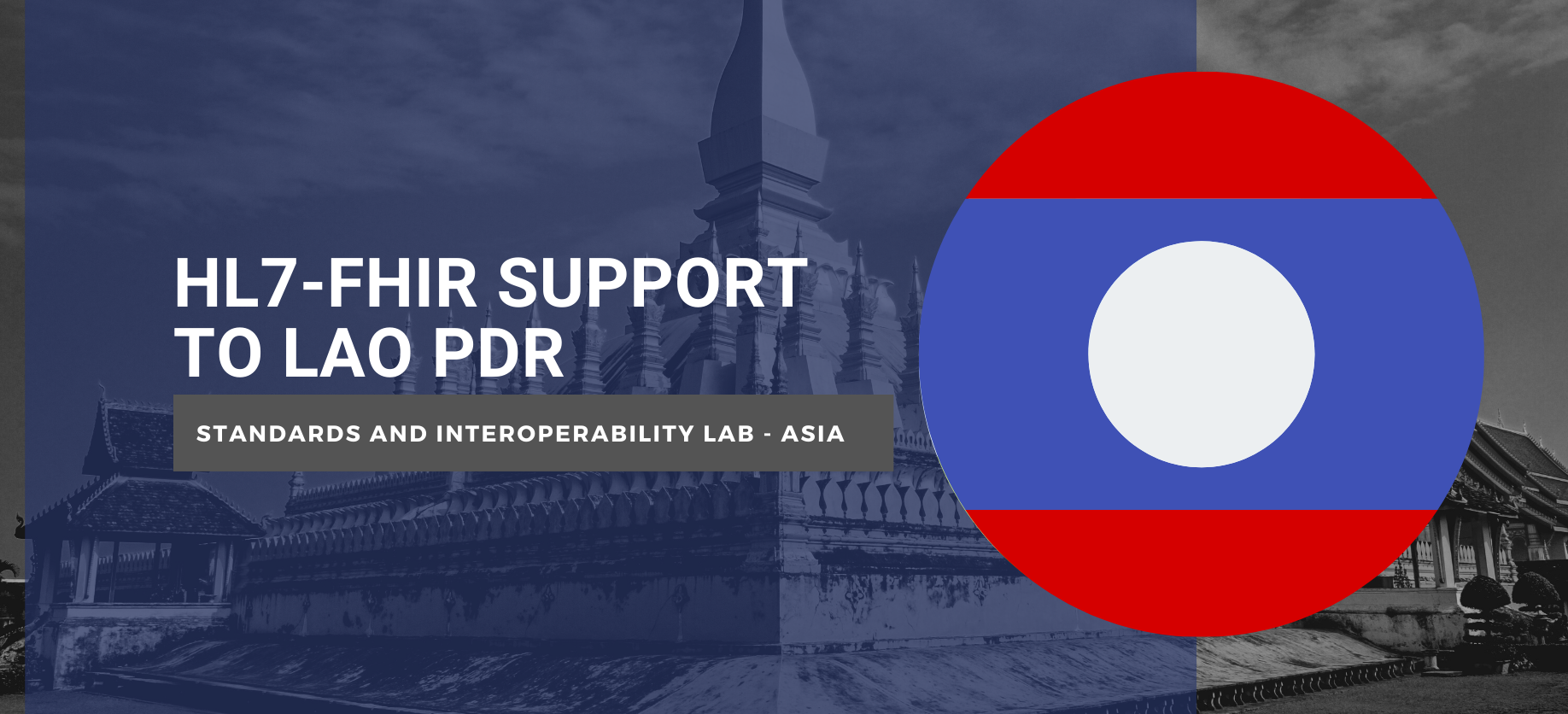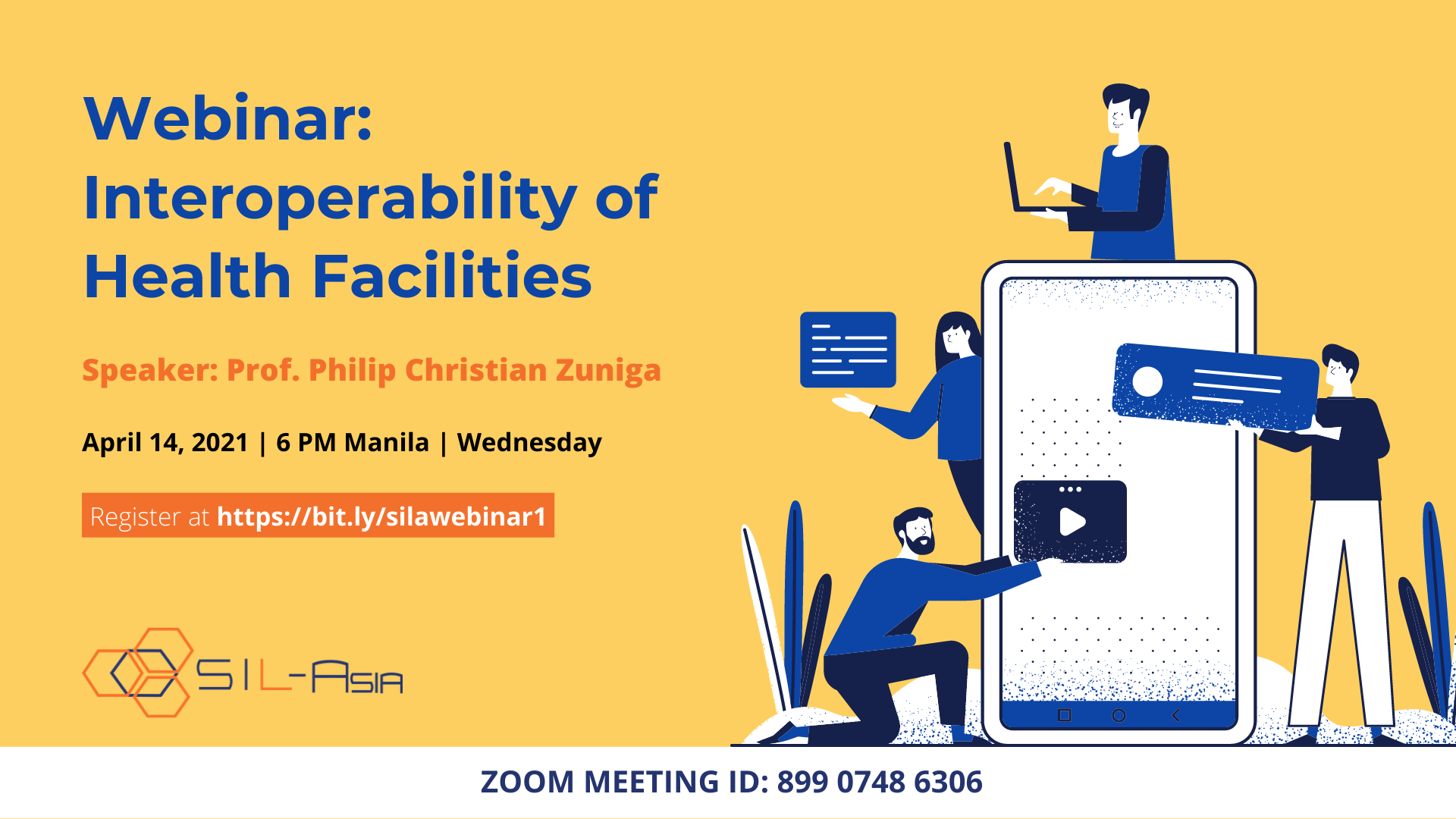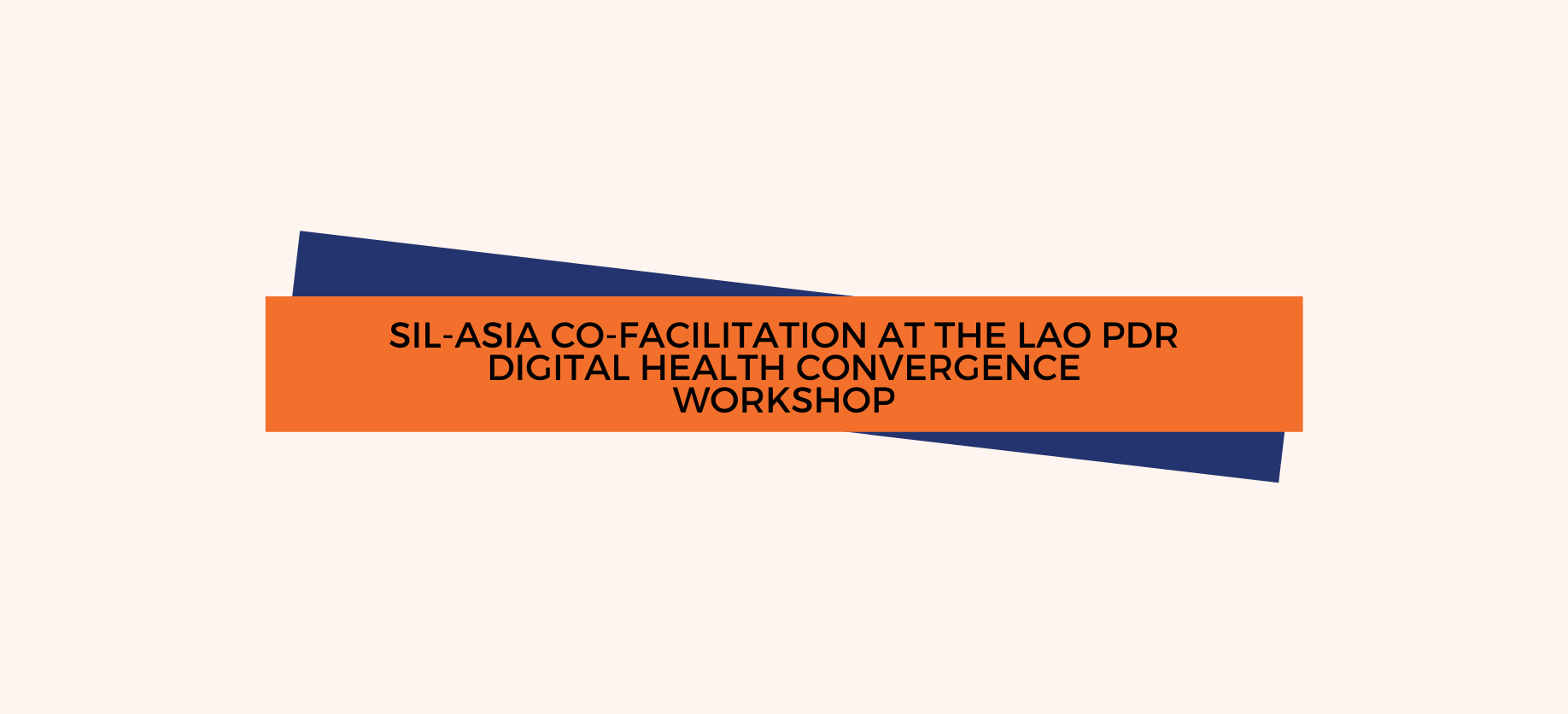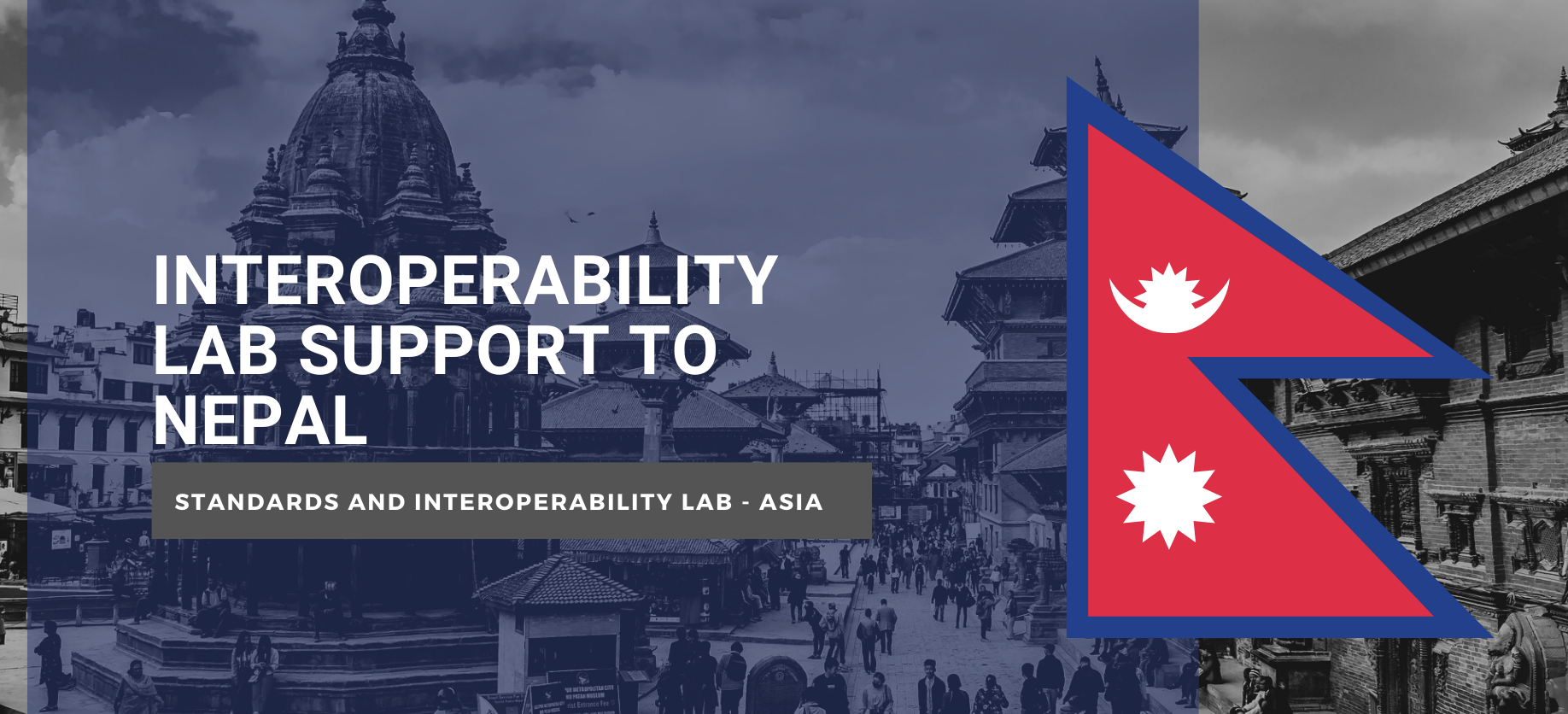VIRTUAL – The Standards and Interoperability Lab – Asia (SIL-Asia) presented a webinar on ‘Interoperability Lab Starter Toolkit’ at the AeHIN Hour on March 15, 2021. Prof. Philip Christian Zuniga, SIL-Asia Technical Director shared the lab’s co-creation process in setting up an interoperability lab. The webinar was attended by 39 participants.
A health interoperability laboratory is a facility focusing on the interoperability of digital health applications. It is a collaborative space equipped with digital health experts to design, develop, and test healthcare systems and applications that are standards-based and interoperable. The resources, processes, and technology needed to manage the lab on a daily basis would depend on the organization’s purpose for setting up the lab.
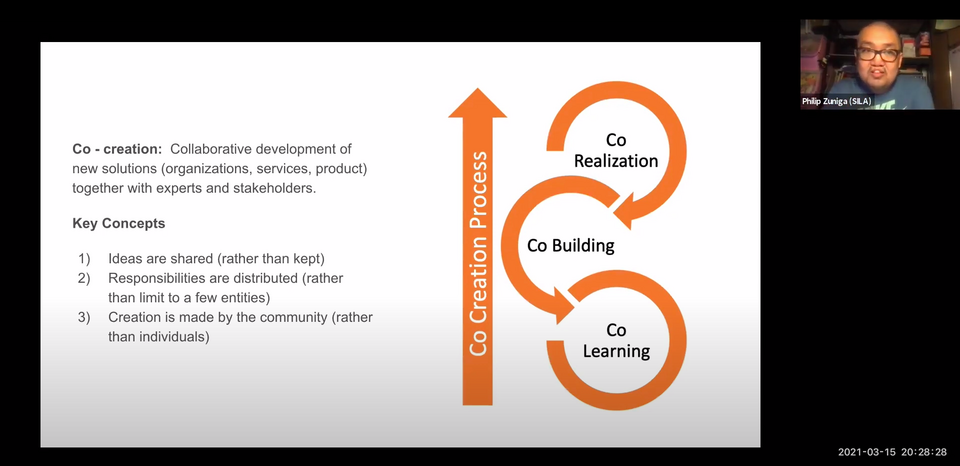
Prof. Philip Zuniga presenting the SIL-Asia’s co-creation process in establishing an interoperability lab
The creation of an interoperability lab in each country can facilitate health data and information exchange at the national level to support evidence-based healthcare service delivery. With this regard, SIL-Asia, as the regional health interoperability lab, can serve as a tool to promote the achievement and measurement of universal health coverage by guiding countries on how to co-create their own in-country interoperability labs.
SIL-Asia’s co-creation process is divided into three main phases: (1) co-realization of the lab’s vision; (2) co-building the lab’s capacities; and (3) co-learning from the lab’s experiences. Each phase will cover a more detailed step-wise approach in establishing the lab. More details about the co-creation process are available in this interoperability lab starter toolkit.
The webinar recording is available here.
The concept for the Standards and Interoperability Lab – Asia was first conceived at the Regional Interoperability Workshop organized by AeHIN in Manila last August 2015 at the sidelines of the Global Health Research Forum. The regional lab was designed to serve as a template of labs in each country that will later form into the Community of Interoperability Labs (COIL).



